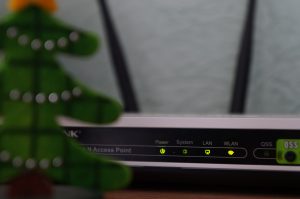 Wi-Fi has become an essential part of our daily lives. You would be using it in your homes and offices regularly. A Wi-Fi router is in the center of the entire network by keeping all the devices connected. You will find numerous options in the market when it comes to buying a Wi-Fi router. The following factors should be considered before buying a router.
Wi-Fi has become an essential part of our daily lives. You would be using it in your homes and offices regularly. A Wi-Fi router is in the center of the entire network by keeping all the devices connected. You will find numerous options in the market when it comes to buying a Wi-Fi router. The following factors should be considered before buying a router.
Wi-Fi Standards
You should know the Wi-Fi standard being used for buying the best router. Earlier routers used 802.11b standard but things have changed a lot over time. The current standard is 802.11ac which means that the routers can support Gigabit speeds. You should preferably buy routers which are compatible with this latest standard. However, you won’t be able to take complete advantage of this latest standard compatible routers unless your mobile devices also support it.
Wi-Fi Bands
2.4 GHz and 5 GHz are the major Wi-Fi bands. Most router supports both these bands and are known as dual-band routers. You should always buy a dual-band router as it can select the best band to connect to.
Security
Wireless networks can be easily hacked into. When buying a router, you should ensure that it uses the WAP2 security protocol. You should also ensure that all the network devices support WAP2 protocol as your network is only as secure as the weakest device connected to it. Prefer routers which come with enterprise or advanced family security features.
Broadband Provider Compatibility
You will generally use the router to link to your broadband service provider. Before buying the router, you must ensure that it is compatible with your broadband service provider. If you want to use the router for linking with fiber connection, then an additional modem may be required to do so. It is also recommended to check with your broadband provider about the data speed they can provide as it will allow you to take full advantage of the Wi-Fi router.
Check Connectivity Requirements
Some routers are designed for broadband connectivity, while others are meant only for Ethernet. Generally, domestic routers will have connectivity options for both and USB connectivity too. You should buy only those routers which meet your connectivity requirements. If you are looking to buy routers for wired connection, then checking speeds is recommended. You should buy routers which support Gigabit speeds. Check if the USB connectivity also supports USB 3/USB 3.1, as it is much faster than the older USB 2.

Recent Comments